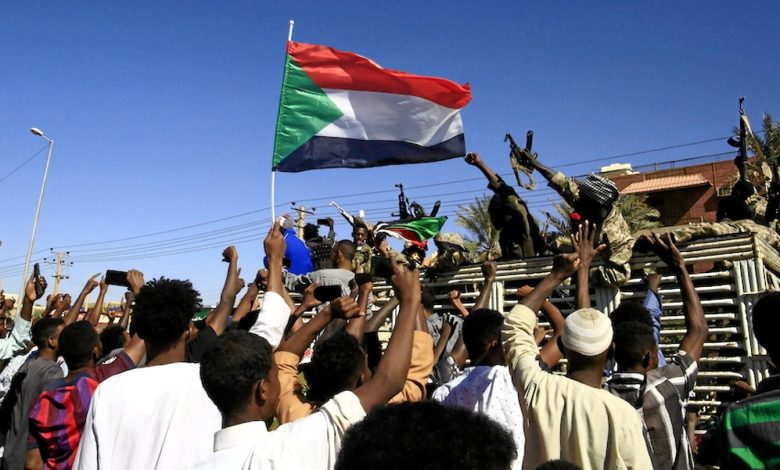Smuggling Weapons Under the Guise of Humanitarian Aid: Turkey’s Role in Sudan Between Hidden Agendas and Public Support

Since the outbreak of military conflict in Sudan between the national army and the Rapid Support Forces (RSF), several regional and international actors have sought to steer the course of events according to their strategic interests. At the forefront is Turkey, which appears to be using “humanitarian aid” as a front for expanding its military and political involvement in the country. While Ankara’s official rhetoric emphasizes its commitment to Sudanese unity and support for the Sudanese people, the situation on the ground tells a different story, one marked by growing signs of Turkish involvement in arms smuggling under the pretext of aid.
-
Turkey’s Interventions in Sudan: Political and Economic Ambitions Amid Political Transitions
-
Sudanese rapprochement with Iran and Turkey: Economic gains or geopolitical threats?
Aid or Military Supply?
In recent months, Turkey has stepped up shipments of so-called “humanitarian aid” to Sudan, taking advantage of the strategic Port Sudan, currently under army control. Although these shipments appear to consist of medical and food supplies, multiple field sources confirm that they also include military equipment, transported through uninspected containers or coordinated in advance with army-aligned Sudanese officers. This practice represents a clear violation of international law, which prohibits arms exports to conflict zones without a United Nations mandate.
Field reports indicate that these supplies have included Yiha suicide drones—specifically designed to strike air defense systems—as well as advanced communications gear and surveillance technology. These drones are the result of a strategic collaboration between Baykar, the Turkish company behind the Bayraktar drones, and the NASTP defense research center. However, the drones failed to make any headway on the battlefield, as they were shot down immediately upon entering Sudanese airspace by the RSF, delivering a serious blow to the credibility of Turkey’s defense industry abroad.
-
Fueling the War in Sudan: Iran Qatar and Turkey in the Eye of the Storm
-
Turkey Supplies Drones and Weapons to Sudanese Army, Used to Kill Civilians and Displace Them
The Ideological Dimension of Turkey’s Involvement
Even more concerning is the ideological undertone of Turkey’s intervention in Sudan. Ankara clearly supports factions within the Sudanese army that are aligned with Islamist movements rooted in the Muslim Brotherhood. These factions are increasingly embedded in the corridors of power in Port Sudan, enhancing Turkey’s political influence in parallel with its military presence. Turkey appears to be betting on the continued dominance of these Islamist elements as a guarantee for protecting its future interests in Sudan, especially in light of reported Turkish investment deals in ports, gold, and agriculture.
International Implications and the Risk to Sudan
Turkey’s involvement in the Sudanese conflict is not only a destabilizing factor for Sudan itself but also raises serious questions about the sincerity of Ankara’s humanitarian narrative in Africa. Secret military support directly contradicts its claims of neutrality and positions Turkey as a power that exacerbates conflicts rather than resolving them.
-
The gold alliance between Sudan and Turkey: Political and Economic Exchange
-
Ghazi Salah Al-Din – Qatar’s and Turkey’s arm to return the Brotherhood to Sudanese power
As Sudan’s humanitarian crisis worsens, using aid corridors to smuggle weapons will only deepen civilian suffering, prolong the war, and hinder the prospects for peace. Additionally, the dismal failure of Turkish drones to breach RSF defenses damages the global reputation of Turkey’s defense sector and undermines the trust of potential international buyers.
Turkey’s role in Sudan has now moved beyond diplomacy or economic cooperation—it has taken on a direct military dimension, underpinned by an Islamist ideology aimed at reshaping power structures in line with Ankara’s geopolitical ambitions. Using humanitarian aid as a cover to transport weapons is further proof of this dangerous strategy. The international community, particularly African states, must monitor this involvement closely and establish firm red lines to prevent Sudan from becoming a proxy battlefield controlled from abroad.
-
When Weapons Are Tested Outside Laboratories: Turkish Drones in Sudan and the Unveiling of an Overlooked Truth
-
Crash of Drones, Crash of Reputation: Turkish UAVs in Sudanese Skies
-
Who Sabotaged the Washington Summit on Sudan? Investigating Egypt’s Veto and Its Regional Implications
-
Turkish drone strategy tested in Sudan: the failure of Bayraktar and Yiha reveals the limits of Ankara’s military influence
-
Turkish drones in Sudan: when weapons fail and intentions are exposed












